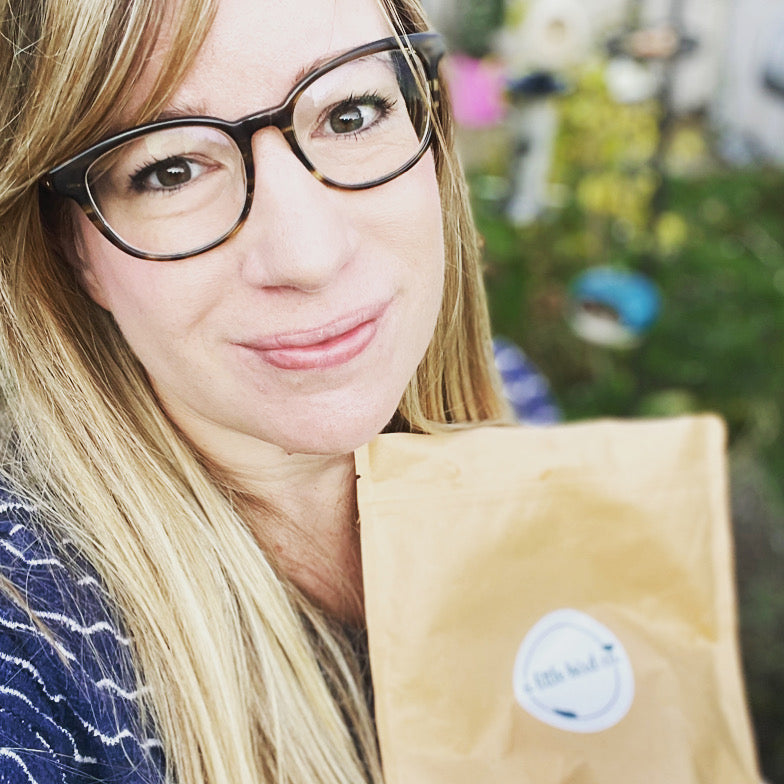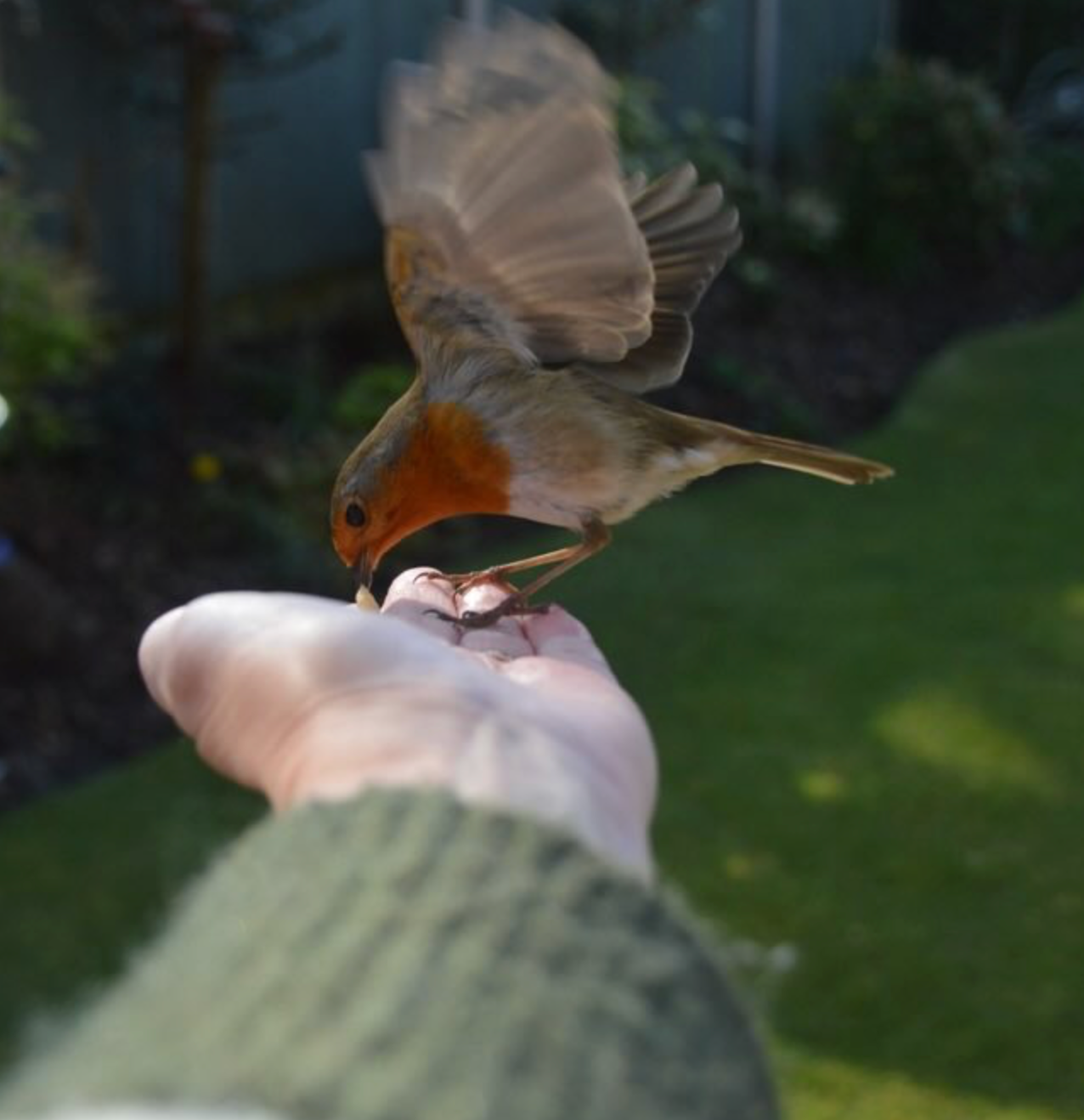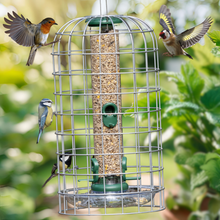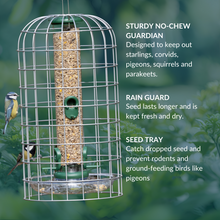How birds can help you defeat garden pests
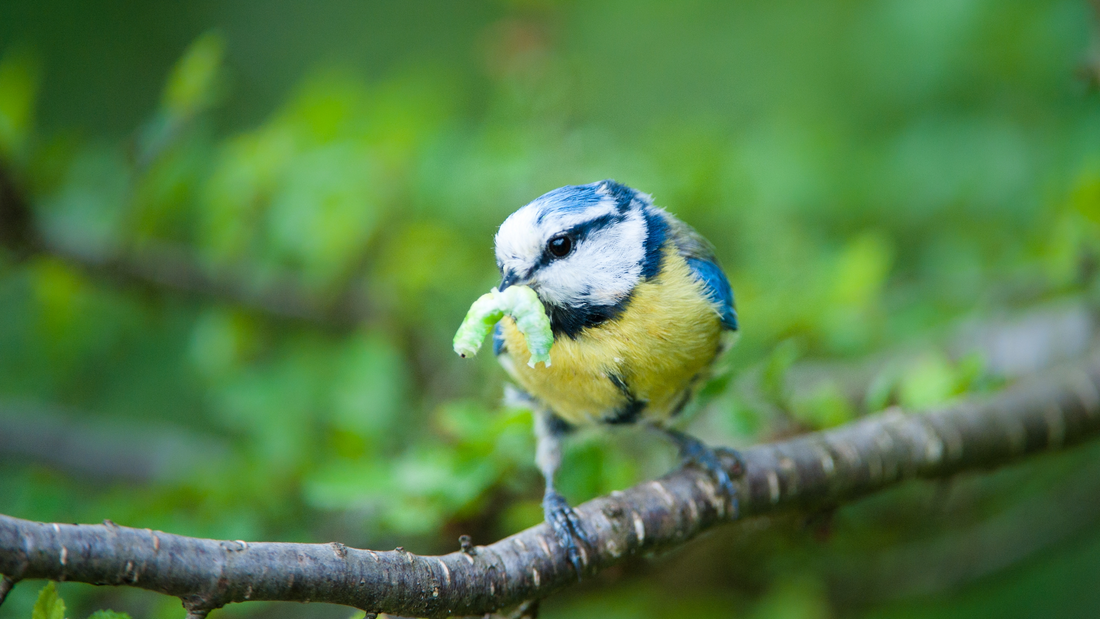
I spent an evening reading in the garde at the end of June, and I could hear a noise I hadn’t heard before. After a bit of detective work, I discovered it was a slug with particularly bad table manners, noisily chewing on a rose petal that had dropped onto the patio. Hearing the slug eating his way through the petal made me stop and think about the ways we can recruit wildlife in our garden to support us with pest control.
When it comes to keeping our gardens healthy and thriving, birds are the perfect allies. They offer a natural, effective way to manage pests without the need for harmful chemicals. And slugs aren’t the only pests we might need some help with in our gardens. Aphids, caterpillars and snails can wreak havoc on plants, reducing yields and causing damage. Traditional pest control methods often involve chemical pesticides, which can harm the environment, beneficial insects and the birds that eat them.
Bring Back the Birds!
Birds are natural pest controllers, preying on a variety of insects and other garden pests. Many garden birds, such as blue tits, robins, sparrows, and starlings, have diets that include insects and invertebrates. Their feeding habits help keep pest populations in check, benefiting your garden’s overall health. And as we all know, birds contribute to a balanced ecosystem by aiding in pollination and seed dispersal (and watching them has additional benefits for our mental wellbeing). To benefit from birds’ pest control services, we need to keep our bird feeders and bird baths clean and well topped up, and provide nesting spaces for the birds to use (including nestboxes, hedging and shrubs).
Garden pests...
Aphids are tiny insects that love to feast on plants like roses, tomatoes, and beans. They gather on new growth, sucking out the sap and leaving behind a sticky substance called honeydew. This can attract sooty mould, making leaves look black and dirty. The damage from aphids can lead to stunted growth and twisted leaves, making your plants look unhappy. We all love butterflies, but caterpillars are notorious for their big appetites. They can eat through the leaves of plants such as cabbages, lettuces, and fruit trees. The result? Ragged edges and holes in the foliage, and if you’re not careful, they can strip a plant bare in no time.
Slugs and snails are particularly pesky in damp weather. They love tender plants like hostas, delphiniums, and young vegetable seedlings, and leave behind large, uneven holes in leaves, even devouring entire plants overnight. Their tell- tale slimy trails are usually a clear sign they’ve been on a midnight snack run. Whiteflies are tiny, white insects that can typically be found on the underside of leaves. They enjoy plants such as fuchsias, tomatoes, and cucumbers. These pests feed on plant sap, causing leaves to yellow, wilt, and fall off. Like aphids, they produce honeydew, leading to that same problematic sooty mould.
Leatherjackets, the larvae of crane flies, are soil-dwellers that feast on the roots of grass and other plants. They often cause patches of yellowing, wilting, and dying grass in lawns. If you notice these symptoms, leatherjackets might be to blame.
...and the birds that can help!
Blue tits, with their fondness for caterpillars, aphids, and other insects, are particularly effective pest controllers during the breeding season, when they require extra protein for their chicks.
Robins, on the other hand, feast on beetles, caterpillars, spiders, and other invertebrates. House sparrows are also valuable allies in the garden, hoovering up aphids, caterpillars, and ants, making them useful for controlling these common pests.
Blackbirds, known for their appetite for snails, slugs, and beetles, are especially helpful in controlling slug and snail populations.
Starlings, with their varied diet that includes leatherjackets, caterpillars, and beetles, forage on the ground, turning over soil and helping to aerate it while hunting for pests.
Song thrushes join this line-up, with a particular taste for snails, contributing significantly to keeping snail populations under control in your garden. Listen for the chink sound they make as they break open the shells using a small stone as an anvil.
Many other animals can help keep garden pests in check. Hedgehogs are great for controlling slugs, snails, and insects, so creating a hedgehog-friendly garden with log piles and leaves can be beneficial. Frogs and toads are natural predators of slugs and insects; a small garden pond can attract them. Ladybirds and their larvae are excellent for reducing aphid populations, and planting pollen-rich flowers can attract them. Ground beetles prey on a variety of pests like caterpillars and slugs, so providing ground cover and undisturbed soil can help them thrive.
The proof is in the research!
Creating a garden that welcomes wildlife not only makes for a lively and beautiful space but also helps in keeping pesky insects under control. A study in Biological Conservation found that birds can cut down the number of insect pests by up to 50%. This means fewer caterpillars and aphids eating their way through your beautiful plants. According research carried out by Urban Ecosystems shows that gardens with a variety of native plants can support more insect-eating birds, leading to a noticeable drop in pest numbers— by up to 30% in some cases, and beneficial insects play a crucial role too. A study published in the Journal of Applied Ecology found that gardens with wildflower strips and native plants saw a 10-20% boost in populations of helpful insects like ladybirds and lacewings, which are great at controlling pests naturally. Lastly, according to Agriculture, Ecosystems & Environment, diverse gardens and farms that offer a variety of plants and habitats can reduce the need for chemical pest control by 15-30%. This happens because these environments attract natural predators and parasitoids that help keep pest populations in check.
Other allies
Birds are a great ally when it comes to pest control, but they can’t do it all, and they’re pretty indescriminate about what they’ll eat, hoovering up earthworms along with those pests - and as those of us who’ve tried to grow fruit in a bird-friendly garden know, they enjoy helping themselves to your crops too. Physical barriers like netting and row covers can protect plants from insect attacks, while also allowing light and water to reach them. Regularly inspecting plants and manually removing pests can also keep infestations under control. Crop rotation helps prevent the build-up of pests that favour specific plants, and you can maintain good garden hygiene by removing plant debris and weeds to reduce hiding spots for pests. I’ve tried every method possible to reduce slug damage, including nematodes, coffee grounds, copper tape, egg shells and wool pellets, but the only solution that works in our garden is to only plant the things they don’t like to eat (see the list below for ideas).
While we want to welcome all sorts of wildlife into our gardens, it can be disheartening when our beautiful plants become a buffet for pests. However, by incorporating birds and other helpful creatures into our garden ecosystem, we can naturally manage any invaders. By creating a garden that supports wildlife, we not only foster a vibrant and diverse environment but also harness nature’s own methods for keeping our plants healthy and happy.

